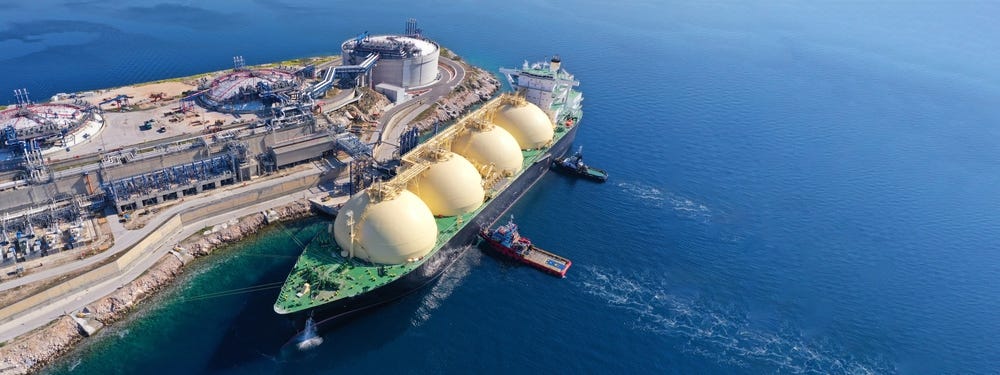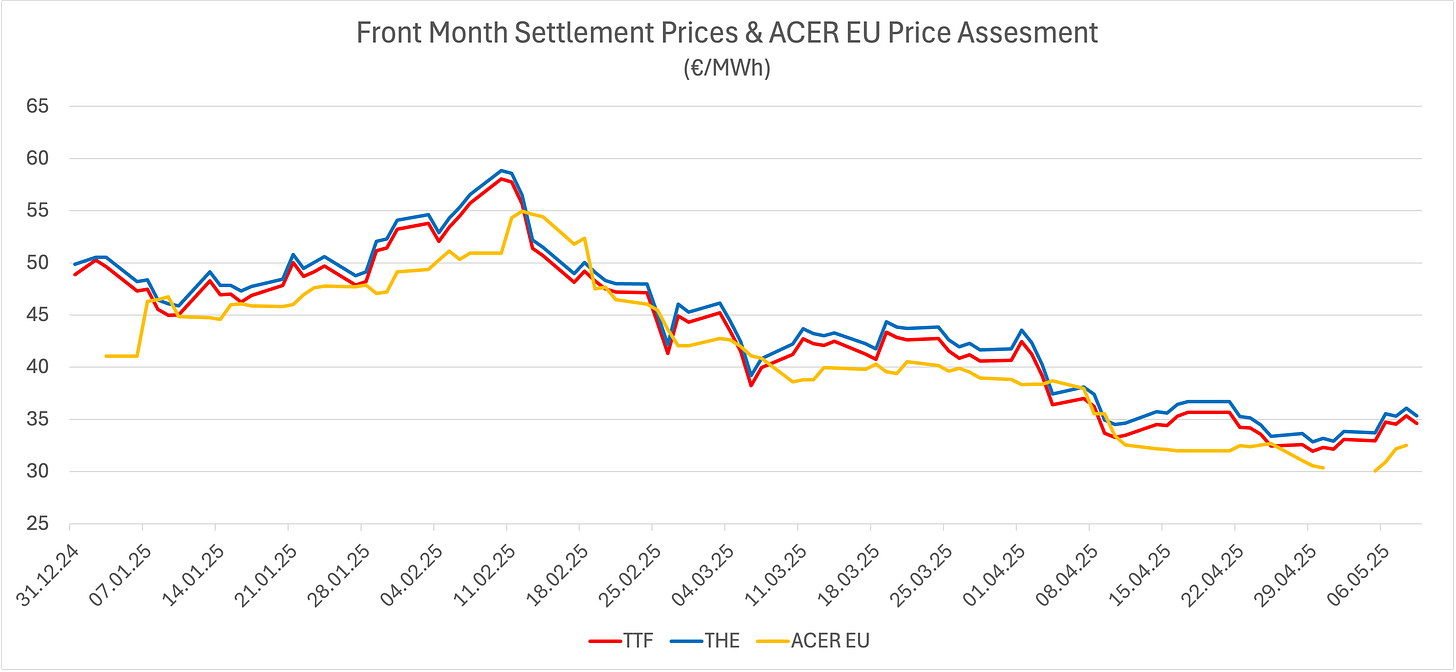The next LNG Market Snapshot will appear on June 2.
Settlement prices for Henry Hub Front-Month Futures rose again over the week, reaching $3.795 per MMBtu on Friday. This brought the US benchmark back to price levels last seen at the start of April and above the long-year average for Henry Hub Futures at this time of the year. Futures prices remained in contango over spot prices at $0.29 on Monday, May 5, the last day with available spot prices from the EIA. US gas storage stood at 60.6 bcm (2,145 bcf) on May 2, which was 2.9 bcm (104 bcf) above the value for April 25 and 84 bcm (30 bcf) above the 5-year average.
Front-Month settlement prices for JKM started calendar week 19 at $11.26 per MMBtu and ended Friday on $11.465. This meant that Asian benchmark prices remained within the price range entered on May 21, 2024, and considerably above prices seen at this time of the year before the 2022 energy crisis. According to data from Kpler, published by the Oxford Institute for Energy Studies, Q1 2025 Chinese imports declined by 6.6 bcm compared to Q4 2024 and by 6.8 bcm compared to Q1 2024. This resulted in the lowest import volume for China for the last two years, falling 1.6 bcm before the previous low point of 21.8 bcm, which was reached in Q1-23. This decline happened despite the Chinese economy growing at the same rate as in Q4-24 at 5.4% year-on-year, which was also the highest growth rate since Q2-23. If this trend holds, a further acceleration of China’s economic dynamic might not be as bullish for LNG demand as it used to be.
The decline in Chinese LNG demand was not compensated for by the stable imports in other developed Asian countries, most importantly Japan and South Korea. With 50.1 bcm, the overall imports for these markets were just 0.5 bcm above Q4-24 and only 0.1 bcm above Q1.24 levels. Imports for emerging Asian countries even declined by 0.7 bcm from Q4-24 and by 0.8 bcm from Q1-24. Hence stable benchmark prices for Asia are largely due to the significant increase in European imports by 8.5 bcm from Q4-24 to reach 40.7 bcm in Q1-25. This is exactly 6 bcm above Q1-24 imports and the second highest import level since Q2-2023. For 2025, the correlation value for JKM and TTF stood at 0.78 (R2), with P-values close to zero. This points to the continued significant interdependencies between both benchmarks, further undermining regional price independence and leading to a truly global LNG market, at least on the demand side. Both European benchmarks returned to levels above $11 per MMBtu, with the British NBP ending on $11.003 and the TTF Front Month contract reaching 11.464 on Friday.
Shipping rates for LNG tankers stood at $15,000 per day for the East of Suez region and $19,000 for West of Suez. This implied a price of $0.128 per MMBtu for US Gulf Coast deliveries to Asian markets, assuming a 25-day journey and including Panama Canal fees. Costs for a 15-day trip to Europe stood at $0.062 per MMBtu. Ignoring liquefaction and regasification fees, this led to an average profit margin of $7.658 per MMBtu for US Gulf Coast deliveries to Asia and $7.789 for deliveries to Europe. Deliveries to Europe became more lucrative by Tuesday, after which the averaged premium for LNG supplies in the Atlantic Basin stood at $0.131 per MMBtu over the week.


Coal remained cheaper than natural gas on an energy equivalent basis in both Asia and Europe throughout the week. The average cost advantage of using coal over gas stood at $7.008 per MMBtu on Asian markets (JKM-Newcastle) and at $6.947 for European markets (TTF-API2). Absent environmental regulation and in combination with supply uncertainty as well as increasing interregional competition, this should incentivize the use of coal over gas in China, India, and other emerging Asian markets.
Settlement prices for the TTF Front-Month Contract rose by €1.688 per MWh over the week, to end at €34.618. The German THE Front-Month contract settled at €35.353 on Friday, with an average weekly premium of €0.768 over TTF. ACER price assessment for Europe continued at a discount, arriving at €32.516 on Thursday, the last day for which ACER published data. Over the week, the average ACER-TTF discount stood at €2.965. The TTF July contract remained in contango over the week, with an average premium of €0.018, which might not be sufficient to incentivize large-scale storage refilling. The Seasonal Spread also remained in contango at an average weekly premium of €1.096 for the winter of the Q3 contract. Meanwhile, the June’26-June’25 spread continued in backwardation with a discount of €2.59 per MWh for next year’s contract. Meanwhile, storage refilling continued in the EU, with overall filling levels across the Union at 42.2% on May 09 over 40.3% in the previous week.










